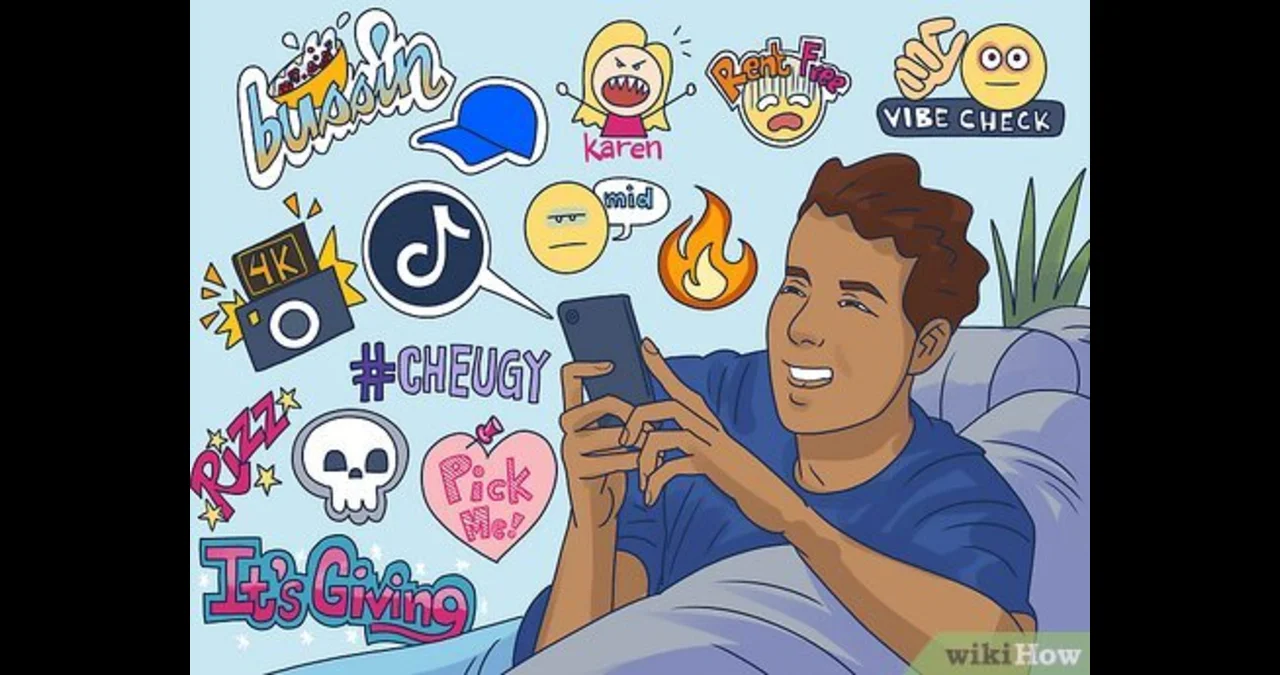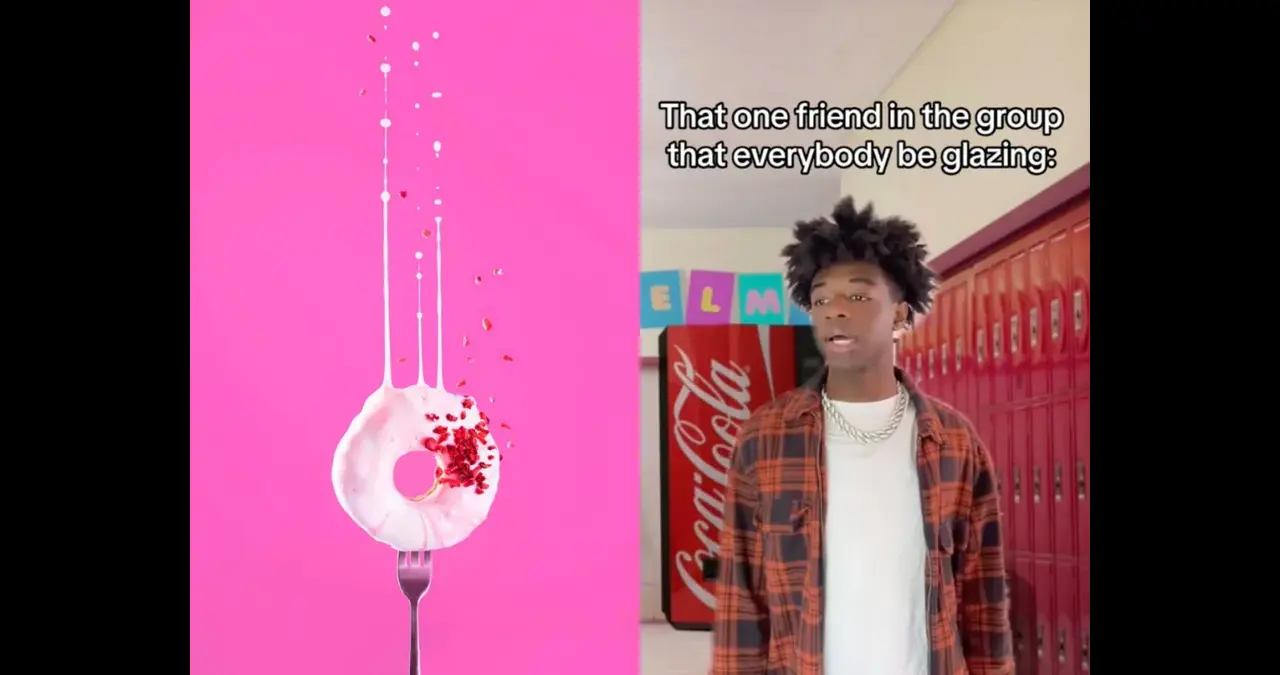Glazing Urban Dictionary In the ever-evolving landscape of internet slang, new terms emerge regularly, capturing the essence of contemporary culture and communication. One such term that has gained significant traction recently is “glazing.” Originating from online communities, “glazing” has transcended its niche beginnings to become a widely recognized expression in digital conversations
Glazing Urban Dictionary Understanding the Term “Glazing”
At its core, “glazing” refers to the act of excessively praising or complimenting someone, often to the point where it becomes insincere or over the top. This behavior is akin to “sucking up” or “bootlicking,” where the individual offers exaggerated admiration, sometimes for personal gain or to gain favor.
The Visual Metaphor Behind “Glazing”
The term draws inspiration from the process of glazing a donut, where a shiny coating is applied, making the donut appear overly sweet and appealing. Similarly, when someone is “glazing,” they are excessively layering on compliments, aiming to make the recipient feel overly praised or flattered.
Contexts Where “Glazing” is Commonly Used
“Glazing” can manifest in various scenarios:
- Social Media Interactions: Users might accuse others of “glazing” when they see overly complimentary posts.
- Celebrity Fandoms: Fans might be labeled as “glazers” when they defend their favorite celebrities excessively, ignoring any flaws or controversies.
- Everyday Conversations: Among friends, someone might be teased for “glazing” another person, especially if the praise seems unwarranted or exaggerated.
The Origins of “Glazing”
The exact origins of “glazing” are somewhat murky, but it’s believed to have emerged from online communities, particularly on platforms like Discord and Twitter. The term gained significant popularity in 2022, with users adopting it to describe instances of excessive flattery in digital interactions.
The Role of Online Communities
Online communities, especially those centered around gaming and pop culture, played a pivotal role in popularizing “glazing.” Users in these communities often engage in discussions about celebrities, influencers, and public figures, leading to the frequent use of terms like “glazing” to describe over-the-top praise.
Memes and Viral Content
Memes and viral content have also contributed to the spread of “glazing.” Images or videos depicting exaggerated compliments or praise are often shared with captions like “Stop glazing,” highlighting the absurdity of the situation.
The Impact of “Glazing” on Digital Communication
The rise of “Glazing Urban Dictionary” reflects broader trends in digital communication, where authenticity and sincerity are often questioned. In an age where online personas can be meticulously curated, behaviors like “glazing” can be seen as attempts to manipulate perceptions or gain favor.

Authenticity vs. Flattery
The prevalence of “glazing” has sparked discussions about the value of genuine compliments versus exaggerated flattery. While compliments can foster positive interactions, excessive praise may be perceived as disingenuous or self-serving.
The Role of Influencers and Public Figures
Influencers and public figures are often at the center of “glazing” discussions. Their interactions with fans and followers can be scrutinized for signs of excessive praise, leading to debates about the authenticity of online relationships.
Criticisms and Controversies Surrounding “Glazing”
While “glazing” is often used humorously, it has also faced criticism for promoting negative behaviors. Some argue that the term encourages cynicism and discourages genuine expressions of admiration. Additionally, labeling someone as a “glazer” can be used to undermine their credibility or intentions.
The Fine Line Between Praise and Manipulation
One of the main criticisms of “glazing” is that it blurs the line between sincere praise and manipulation. In some cases, individuals may use excessive compliments to gain favor or influence others, raising ethical concerns about the authenticity of their intentions.
Social Dynamics and Peer Pressure
The use of “glazing” can also reflect broader social dynamics and peer pressure. In some communities, there may be an unspoken expectation to offer compliments or praise, leading individuals to engage in “glazing” behaviors to fit in or gain approval.
The Future of “Glazing” in Slang
As with many slang terms, the longevity of “glazing” remains uncertain. Language evolves rapidly, especially in online communities, and new terms frequently emerge to capture shifting cultural dynamics. Whether “glazing” will remain a staple in digital lexicons or be replaced by another term is yet to be seen.
The Evolution of Online Slang
The trajectory of “glazing” mirrors the evolution of online slang in general. Terms often gain popularity quickly but can fade just as fast, replaced by new expressions that resonate with current cultural trends.
Cultural Shifts and Language Change
The rise and fall of slang terms like “glazing” also reflect broader cultural shifts. As societal values and norms change, so too does the language used to express them. The continued use or decline of “glazing” will likely depend on how it aligns with evolving cultural attitudes toward authenticity and communication.
Conclusion
“Glazing” serves as a fascinating example of how language adapts to the digital age. Originating from online communities, the term has become a widely recognized expression, highlighting the complexities of digital communication and the nuances of online interactions. Whether viewed as a humorous critique or a serious commentary on authenticity, “glazing” underscores the importance of sincerity in an increasingly digital world.




